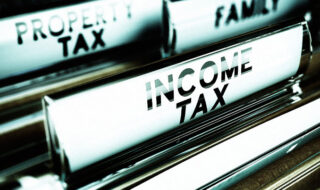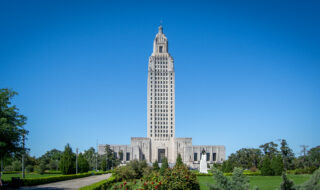Topics:
July 6, 2023 Last Edit: June 5, 2025
Legislative Review: A Look at the 2023 Session in Nebraska
TAX RELIEF
The legislature adopted major income and property tax relief in the form of LB 243 and 754. Highlights of the measures, are as follows: LB 754 – Lowers the top two individual and corporate income tax brackets to 3.99% by 2027 and exempts social security from income taxes beginning in 2024. The measure is designed to provide over $3.3 billion in tax relief by fiscal year 2029. LB 243 – Increases contributions to the Property Tax Credit Fund, removes community colleges from the property tax rolls, and establishes caps on local school district spending. Combined with increases in state aid to education ($1 billion this year and $250 million each year thereafter), the Legislature will deliver over $3.3 billion in property tax relief by fiscal year 2029.STATE BUDGET
The legislature adopted a $10.7 billion state budget package which increased state spending by 2.3% over the next two years. In the waning days of the session, Governor Pillen exercised his line-item veto authority to veto $119 million in spending, with the legislature only able to override $1 million of these vetoes. As finalized, the state’s Cash Reserve fund is expected to be at $779 million by June 30, 2025 (13% of annual state revenues).LOOKING AHEAD TO 2024
All legislation that was not adopted or indefinitely postponed this session would be carried over to the 2024 Legislative session. The primary bills of interest, which are opposed by NFIB, that could receive further consideration next session, include the following: LB 57 – PAID FAMILY AND MEDICAL LEAVE INSURANCE ACT: Would establish a statewide paid family medical leave insurance program similar to Nebraska’s unemployment insurance system, managed by the state Department of Labor. The bill would also apply to all employers’ subject to the Employment Security Act (one or more employees), with self-employed individuals eligible to participate. Would provide employees with benefits of up to two-thirds of the state average weekly wage for up to 12 weeks of leave or, for leave taken on an intermittent basis, 60 workdays during any benefit year. Finally, the measure would allow 12 weeks or 60 workdays of paid leave if taken intermittently and would base the paid leave upon 90 percent of an individual’s average weekly wage that is at or below 50 percent of the state average weekly wage and 50 percent of the individual’s average weekly wage that is above 50 percent of the state average weekly wage, not to exceed 66 percent of the state average weekly wage. LB 79 – TAXATION CONSUMPTION TAX ACT: Would eliminate all property, income and corporate taxes and replace it with a tax on the use or consumption in the state of Nebraska of taxable property or services (excludes intangible property and services) at a rate of 7.5%.
State:
Get to know NFIB
NFIB is a member-driven organization advocating on behalf of small and independent businesses nationwide.
Related Articles

March 2, 2026
NFIB Launches Radio, Digital Ads to Stop State Income Tax
Small businesses oppose new “Millionaire Tax” on Main Street
Read More


March 2, 2026
Take Action: Help Stop Increased UI Taxes on Maryland Small Businesses
Urge your lawmakers to reject this bad policy
Read More


March 2, 2026
Tax Relief, Workforce Development Top NFIB’s LA Legislative Agenda
This year’s legislative session will begin on March 9.
Read More


March 2, 2026
NFIB Launches Radio Ads Urging Lawmakers to Ease Small Business Tax Burden
NFIB supports a bill reducing the state tax on business personal property.
Read More







